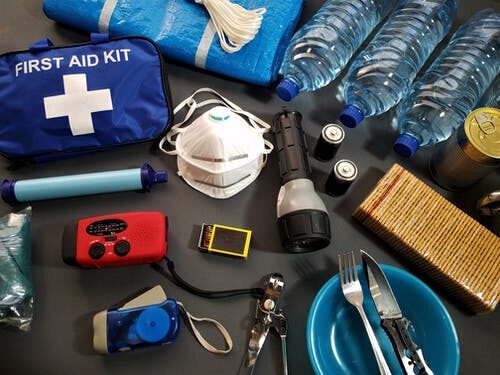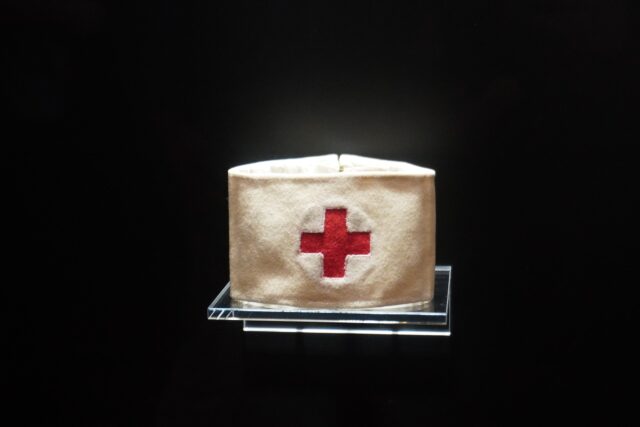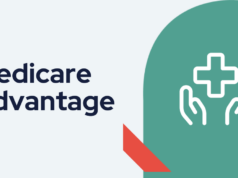
The occurrence of injuries is one of life’s inevitable realities. Oftentimes, emergency situations can feel daunting, particularly if you don’t know how to handle them.
Fortunately, there are ways to educate and prepare yourself for the possibility of emergency circumstances, with the most effective being emergency response training courses. According to newcastletraining.com, while there are several reasons why you need an emergency medical course to better manage unexpected urgencies. Let’s first take a look at some of the key benefits these programs have to offer you.
1. Saving Lives

It’s no secret that emergency response training programs save lives every year. Consider first aid training courses as an example. These classes typically teach participants how to operate an automated external defibrillator (AED) in the event that someone’s heart stops during a medical emergency. Roughly 30,000 people experience sudden cardiac arrest outside of a hospital setting every year, and the prompt use of an AED (between three to five minutes) can increase survival rates from 50% to 75%. Emergency training also increases your awareness of hazards and medical issues that could lead to fatalities. By becoming more alert to potentially fatal risks, you become more equipped to prevent them, thereby saving lives.
2. Reducing the Severity of Injuries
In emergency situations, time is of the essence. If you fail to intervene quickly, a medical emergency can quickly deteriorate from bad to worse. For example, a patient may have fallen unconscious but was still breathing. However, if they don’t receive proper medical attention, they may stop breathing or their heart could stop beating. This is clearly a much more severe circumstance that could result in a much more dire outcome.
However, when you enroll in an emergency response program, you’ll learn various techniques for stabilizing the patient to prevent their condition from worsening. For example, you may learn how to use basic household items to administer first aid in the event that a first aid kit isn’t readily available. With this practical knowledge, you may not be able to prevent injury altogether but you’ll greatly reduce the severity of injuries and the duration of the recovery period.
3. Building Confidence

When it comes to handling emergency situations, confidence is essential. If you’re not confident in these circumstances, the consequences could be extreme. For example, if you call 911 but you’re stuttering and struggling to communicate clearly to the operator, then they are not going to be able to send help as quickly as possible. Similarly, if you’re shaky and overwhelmed, you’re not going to be capable of providing the highest quality medical attention to the patient.
By taking an emergency response training course, you’ll have the opportunity to practice emergency response techniques in a safe, contained environment. Plus, you’ll get instructor feedback, which you can learn from. You’ll then apply that feedback into your future practice attempts.
4. Enhancing Technical Knowledge
Unless you’re a medical professional like a doctor or nurse, or an emergency responder, odds are you know relatively little about how to provide medical aid or how to handle emergency situations. For example, you may not know how to administer cardiopulmonary resuscitation (CPR) or how to use a fire extinguisher. While these skills may not seem overly relevant or necessary in everyday life, not having them could lead to dire repercussions in the event of an emergency.
Emergency response training courses can help provide you with the knowledge base you need on these subjects. From preparing emergency equipment to preventing injury to assessing hazards, there is a training course that will cover nearly any emergency readiness subject you could think of. Not only will you be more prepared as a result, but you’ll be more informed and educated on a wider range of subjects.
5. Providing a Sense of Empowerment

Emergency response training classes can be incredibly fulfilling. When you take the initiative to learn how to step up in emergency settings, you’re not only educating yourself – you’re empowering yourself. You are actively seeking out the tools you need to become a leader in the most urgent circumstances. Taking the time and effort to practice the skills needed to treat injuries and prevent fatalities means you are doing your part to protect yourself and others in the face of the unexpected. You are giving yourself the power you need and deserve to preserve your safety and that of those you care for most.
6. Meeting New Like-Minded People
One of the extra perks of attending an emergency response training course is that you’ll get to meet new people who share your objectives (assuming you enroll in an on-site course). While the exact number of students will vary depending on the training provider, the classes usually consist of small groups (roughly six to 12 participants). This gives students the opportunity to receive personalized attention while still having the chance to practice emergency response techniques with one another.
Some people may be there to fulfill a work requirement or they may be there in the genuine hopes of increasing their sense of preparation. No matter their exact reasons for enrolling, it’s likely that the other students will share some common ground with you. You may find yourself making some new like-minded friends or professional connections in your training course. You might even stay in touch after the course has finished.
7. Reducing Occupational Hazards

Without proper emergency medical training, you could be exposed to various threats without even knowing it. By enrolling in an emergency response training course, you’ll become aware of some of the most common hazards in certain environments, particularly the workplace. From there, you can carry that knowledge with you when you return to work and, if you notice any hazards in your workplace, you’ll know to flag them immediately. As a result, you’ll be helping to create safer work environments for you and your colleagues.
Clearly, there are numerous benefits to taking an emergency response training course – or several for that matter. Increased confidence, reduced workplace hazards, and most importantly, saving lives – there’s no shortage of incredible rewards you’ll reap when you take this step in your emergency response education. There’s no better time than now to empower yourself to step up in medical emergencies of all kinds. Enroll in an emergency response training course today.








